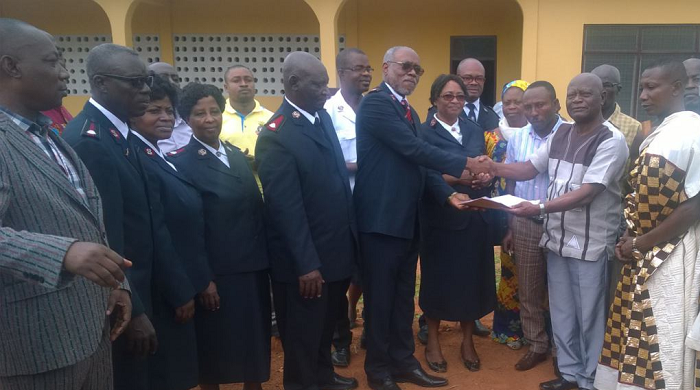
Salvation Army Church to establish university at Agona
The Agona Traditional Council (ATC), in collaboration with the Sekyere South District Assembly in the Ashanti Region, has donated a 13-acre piece of land to the Salvation Army Church for the establishment of the Church’s second university in Africa. The Church built its first university in Africa in the Democratic Republic of Congo.
The Salvation Army Church was established in Ghana in 1922 and has presence in 127 countries across the world.
Decision
At a ceremony to hand over the land to the Church at Agona, the District Chief Executive for Sekyere South, Mr Edward Kusi Ayarkwa, said when fully functional, the university would have solved a long-cherished dream of the traditional council since several attempts by the council to put up a tertiary institution in the area had not been successful due to lack of funds.
According to him, the council finally settled on the Salvation Army Church after several proposals from other religious bodies.
Mr Ayarkwa said apart from the fact that the church was the first to submit its proposals, its vision in education fell in line with that of the council.
Appreciation
The Agona Adontenhene, Nana Amoah Gyasi, expressed appreciation to the church for its decision to establish a university in the area and that it would encourage the people to acquire tertiary education within their local vicinity.
Education
The Commander of the Salvation Army Church, Col. Joseph Lukau, said, ‘University education means more than the next level in the learning process. It is a critical constituent of the global development of man and provides the high-level skills necessary for the labour market.’
‘It builds man’s mental faculty. Thus, the training it offers essentially produces teachers, doctors, nurses, civil servants, engineers, humanists, entrepreneurs, scientists and social scientists, among other professionals,’ he said.
Col Lukau also indicated that besides training people to be morally upright and lead worthy lives, his outfit was also into education and had established a number of second cycle institutions in the country.
The church has put together a high-level panel comprising professors, senior lecturers, professionals in different areas of studies, technocrats and qualified administrative personnel to develop and build the curricula for the proposed university.
Courses the university is expected to run include nursing, business studies, education and theology with plans to introduce more programmes in the future.
